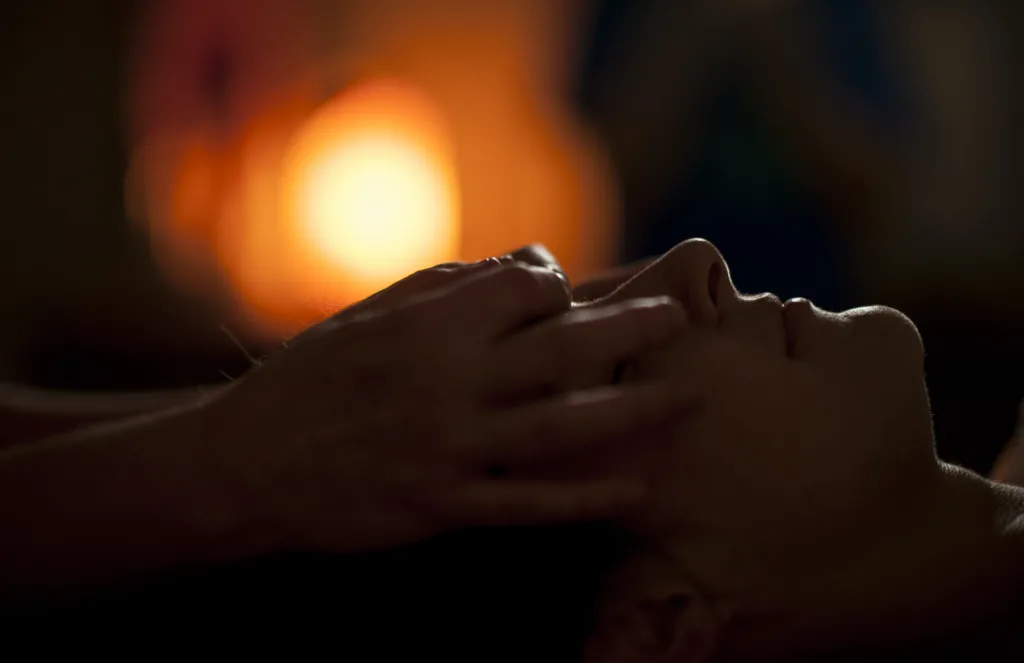
Imagine feeling uncertain about your overall well-being and wondering if you could benefit from a powerful healing technique. With the introduction of the innovative product, “How Do I Know If I Need Reiki?”, those pondering this question can now find clarity and guidance. This unique product seeks to provide individuals with a comprehensive understanding of Reiki and assist them in determining if it could be the missing piece to their holistic journey. Through simple and accessible information, “How Do I Know If I Need Reiki?” aims to empower individuals to make informed decisions about their health and well-being.

What is Reiki?
Reiki is a healing modality that originated in Japan and involves the channeling of universal life force energy to promote healing and balance on physical, emotional, mental, and spiritual levels. The word “Reiki” comes from the Japanese words “rei” meaning universal and “ki” meaning life force energy. It is based on the belief that when our energy is flowing freely and harmoniously, we experience a sense of well-being and vitality. Reiki can be practiced with a light touch on or just above the body, making it a non-invasive and gentle form of healing.
Origin of Reiki
Reiki was developed by Mikao Usui in the early 20th century. Usui was a Japanese Buddhist monk who embarked on a spiritual quest to discover the ancient secrets of healing. After many years of study and meditation, Usui had a profound spiritual experience on Mount Kurama, which led to the awakening of his healing abilities. He then started teaching and practicing Reiki, passing on the knowledge to his students. Today, Reiki has been spread across the world and has been adapted into various forms and lineages.
The practice of Reiki
The practice of Reiki involves the practitioner acting as a channel for universal life force energy to flow through their hands and into the client’s body. The recipient remains fully clothed and can be either sitting or lying down. The practitioner gently places their hands on or near the recipient’s body, focusing their intention on facilitating the healing process. The energy flows to wherever it is needed most, promoting relaxation, rebalancing the energy centers (chakras), and activating the body’s natural healing abilities.
Benefits of Reiki
Reiki offers numerous benefits for physical, emotional, mental, and spiritual well-being. It can help alleviate physical symptoms such as pain, fatigue, and tension, allowing the body to heal more efficiently. Reiki also promotes emotional healing by releasing trapped emotions, reducing anxiety and depression, and increasing self-awareness. On a mental level, it can improve clarity, focus, and mental resilience. Spiritually, Reiki can deepen one’s connection to their higher self and the divine, leading to a sense of purpose, inner peace, and spiritual growth.

Understanding Energy Imbalances
Energy imbalances can manifest in various ways, affecting our physical, emotional, and spiritual well-being. By recognizing the signs and symptoms of energy imbalances, we can better understand if Reiki might be beneficial for us.
Physical symptoms
Physical symptoms of energy imbalances may include chronic pain, fatigue, headaches, digestive issues, and weakened immune system. These symptoms often persist despite medical treatments and can be a sign of blocked energy or disharmony within the body.
Emotional and mental symptoms
Emotional and mental symptoms may include anxiety, depression, mood swings, irritability, lack of motivation, and difficulty concentrating. Energy imbalances can disrupt the flow of emotions and thoughts, leading to emotional instability and mental fog.
Spiritual symptoms
Spiritual symptoms of energy imbalances may manifest as feeling disconnected from your higher self or source of spirituality, a lack of purpose or meaning in life, or a general sense of spiritual emptiness. These symptoms can indicate a need for spiritual healing and realignment with your inner truth.
Signs that Reiki may be beneficial for you
If you resonate with any of the following signs or symptoms, it may be an indication that Reiki could be beneficial for you:
Feeling stressed or overwhelmed
If you often find yourself feeling stressed, overwhelmed, or mentally exhausted, Reiki can help you release tension and find a sense of inner calm.
Experiencing physical pain
If you are dealing with chronic pain or experiencing acute physical discomfort, Reiki can provide relief by promoting relaxation and supporting the body’s natural healing mechanisms.
Emotional imbalance
If you are struggling with emotional imbalances, such as anxiety, depression, or mood swings, Reiki can help you release stuck emotions, create emotional balance, and cultivate self-awareness.
Chronic illnesses
If you have been diagnosed with a chronic illness or are dealing with a long-term health condition, Reiki can complement conventional medical treatments by promoting relaxation, reducing side effects, and supporting overall well-being.
Difficulty sleeping
If you struggle with insomnia or have difficulty falling asleep or staying asleep, Reiki can help you relax and create a peaceful state of mind, allowing for a more restful sleep.
Lack of clarity or focus
If you find it challenging to concentrate, make decisions, or feel mentally scattered, Reiki can assist in clearing mental fog and enhancing mental clarity, allowing for improved focus and decision-making.
Feeling disconnected or spiritually empty
If you have a sense of disconnection from your spiritual self or are seeking a deeper connection to your spirituality, Reiki can help you restore and strengthen your spiritual connection, leading to a greater sense of purpose and fulfillment.
Past traumas or unresolved issues
If you have experienced past traumas or have unresolved emotional issues, Reiki can support your healing journey by gently releasing emotional blockages and promoting deep emotional healing.
Seeking personal growth and self-improvement
If you are on a path of personal growth and self-improvement, Reiki can serve as a valuable tool for self-reflection, self-care, and expanding self-awareness.
Curiosity and openness to alternative therapies
If you are curious about alternative therapies and have an open mind to explore different healing modalities, Reiki can provide you with a unique and transformative experience.

Reiki as a Complementary Therapy
Reiki is often used as a complementary therapy alongside conventional medical treatments. While it is not a replacement for medical care, it can enhance overall well-being and support the healing process in various ways.
Enhancing overall well-being
Reiki promotes a sense of relaxation, inner peace, and balance, which can contribute to overall well-being. By addressing the physical, emotional, mental, and spiritual aspects of an individual, Reiki supports holistic healing and creates a foundation for optimal health.
Supporting conventional medical treatments
Reiki can be used alongside conventional medical treatments to support the healing process. It can help reduce side effects of medications or treatments, accelerate recovery, and improve the efficacy of medical interventions.
Promoting relaxation and stress reduction
Stress has a significant impact on our overall health and well-being. Reiki helps activate the body’s relaxation response, reducing stress levels and promoting a state of deep relaxation. This can have a positive impact on various physical and mental health conditions.
Aiding in emotional healing
Emotional healing is an essential aspect of holistic health. Reiki can help release emotional blockages, promote emotional balance, and provide a safe space for processing and healing emotional wounds. This can be particularly beneficial for individuals dealing with trauma, grief, or other emotional challenges.
Considering Your Personal Beliefs and Values
When deciding whether Reiki is right for you, it’s important to consider your personal beliefs and values regarding spirituality, holistic practices, and energy healing.
Exploring your spirituality
Reiki is often seen as a spiritual practice that connects individuals with their higher selves and the divine. If you have a spiritual inclination and are seeking ways to deepen your spiritual connection, Reiki may align well with your beliefs and values.
Finding alignment with holistic practices
If you appreciate holistic approaches to health and wellness that consider the whole person, Reiki can be a valuable addition to your self-care routine. It embraces the idea that physical, emotional, mental, and spiritual aspects are interconnected and interdependent.
Being open to energy healing
Reiki is based on the belief that there is a subtle life force energy that flows through all living beings. Being open to the concept of energy healing and accepting the possibility that energy imbalances can affect our well-being is an important factor in exploring Reiki.
Assessing Your Readiness for Reiki
Before starting a Reiki practice, it’s essential to reflect on your current needs and goals, find a reputable Reiki practitioner, understand the commitment and investment required, and consider the potential benefits and risks.
Reflecting on your current needs and goals
Take some time to identify what areas of your life or aspects of your health you would like to address with Reiki. Reflect on your intentions and set clear goals for your Reiki journey.
Finding a reputable Reiki practitioner
Research and seek recommendations to find a reputable and experienced Reiki practitioner. Look for someone who has proper training, relevant certifications, and positive reviews from clients. A good practitioner will create a safe and supportive environment for your healing process.
Understanding the commitment and investment required
Reiki is not a quick fix; it requires commitment and active participation on your part. Understand that healing takes time and may involve multiple sessions. Additionally, consider the financial investment required for regular sessions with a practitioner.
Considering the potential benefits and risks
While Reiki is generally safe and non-invasive, it’s essential to be aware of potential risks and limitations. Discuss any pre-existing health conditions or concerns with your Reiki practitioner and consult with a healthcare provider if necessary.
Seeking Professional Guidance
If you have further questions or concerns about Reiki, it can be helpful to seek guidance from healthcare providers and Reiki practitioners, as well as attend informational workshops or events and explore reputable books and online resources.
Consulting with a healthcare provider
If you have any specific health concerns or are receiving medical treatments, consult with your healthcare provider before starting Reiki. They can offer guidance on how Reiki may complement your current medical care.
Speaking with a Reiki practitioner
Reach out to a Reiki practitioner and schedule a consultation or session. This will allow you to ask questions, get a sense of their approach, and determine if their energy and expertise resonate with you.
Attending informational workshops or events
Many Reiki practitioners and organizations offer workshops, lectures, and informational events where you can learn more about Reiki and its benefits. These can be a great way to gain a deeper insight into the practice before committing to sessions.
Reading books and online resources
There are numerous books, articles, and online resources available that provide information on Reiki. Taking the time to read reputable sources can help you gain a comprehensive understanding of the practice and its potential benefits.
Personal Experiences and Testimonials
Hearing from individuals who have benefited from Reiki can provide valuable insights into the potential outcomes and experiences associated with the practice. Sharing personal testimonials and stories can offer reassurance and help you connect with others who have found healing through Reiki.
Trust Your Intuition
Ultimately, the decision to pursue Reiki should be guided by your own intuition. Listen to your inner wisdom and pay attention to how you feel when considering Reiki. If it resonates with you and feels right, it may be an indication that Reiki is a path worth exploring.
Conclusion
Reiki is a powerful and gentle healing modality that can support your overall well-being on physical, emotional, mental, and spiritual levels. By understanding energy imbalances, recognizing signs that Reiki may be beneficial for you, considering your personal beliefs and values, assessing your readiness, and seeking professional guidance, you can make an informed decision about integrating Reiki into your healing journey. Trust your intuition and remember that Reiki offers a pathway to self-discovery, healing, and personal growth.









